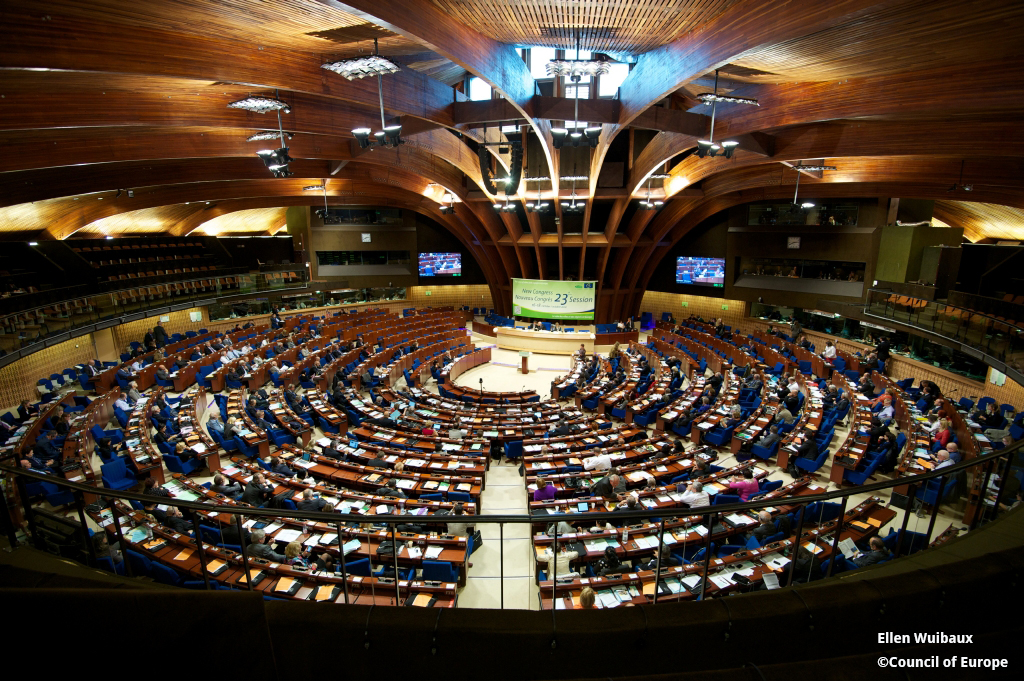Twelve years that we were expecting it, the “Convention for the Protection of Human Rights and Dignity of the Human Being with regard to the Application of Biology and Medicine: Convention on Human Rights and Biomedicine” called “Oviedo Convention” has been ratified by France on 13th December 2011. Already ratified by 28 member states of the Council of Europe, the text will be in force on 1st April 2012. Then it will have a superior value compared to national legislation.
Specified fundamental ethical principles
The Oviedo Convention has the merit of being the first international text giving as common framework and benchmark, ethical principles to signatory States. It has the purpose to protect the human in its dignity, its identity and its integrity (article 1) with regard to the evolutions of medicine and biology.
Now it is explicitly specified that the interests and welfare of the human being shall prevail over the sole interest of society or science (article 2), that any form of discrimination against a person on grounds of his or her genetic heritage is prohibited (article 11), that the use of techniques of medically assisted procreation shall not be allowed for the purpose of choosing a future child’s sex, except where serious hereditary sex-related disease is to be avoided (article 14), that the creation of human embryos for research purposes is prohibited (article 18.2) or even that the human body and its parts shall not, as such, give rise to financial gain (article 21).
Mr. Jean Leonetti, Minister for European Affairs, welcomes the ratification of this convention which “for him poses very strong principles which are at the same time general and timeless” and “strong enough to protect the human being from possible abuses of new medical techniques“.
An imperfect protection of the human embryo
Although the principles set out by Oviedo Convention are not contestable, it is regrettable they are reduced to ethical minimum.
For instance, the predictive tests of genetic diseases, are well structured by the Convention (article 12). According to the report, these tests “can be very benefic for health, when they allow implementing a preventive treatment or reducing the risks“. Yet without any justification, the explicative report of the convention excludes the human embryo and fetus from the scope of the article. Hence it does not represent an obstacle to the selection, to the discrimination of the embryos with genetic diseases and does not encourage either the research of treatments for genetic diseases detectable but not yet curable to date. Moreover, the Convention requires the signatory members authorizing the research on the embryo, ensure to the latter an “appropriate protection“. The principle is laudable, but the expression “appropriate protection” is not defined and is thus let to more or less permissive interpretations.
Finally, the additional protocol which bans cloning a “human being” also leaves this notion to the interpretation of the States. Thus straight away the Netherlands noted that they do not include the human embryo or the fetus in the expression “human being“.
By these three examples we can perceive that the embryo is left out, like a notion which disturbs, that we avoid, and finally that we exclude from the protective provisions. It is a pity that an international text cannot, like the Court of Justice of the European Union in the Brüstle vs Greenpeace affair relative to patents, define the human embryo and protect it accordingly.
A limited impact on the French legislation. Reopening the debate?
The impact of this convention in French legislation will be limited. Indeed, the French legislation does not emit contradiction with the general and consensual principles of the Convention. Thus there will not be any significant changes. However, the context of the entry into force of this text will be that of a national political campaign. Then we can wonder: Would not be the occasion to open again the debate on the selection of Down syndrome fetuses, which are subject to discrimination due to their genetic heritage?

